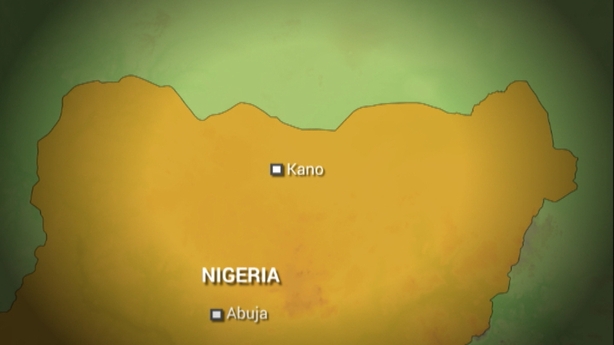The death toll from a suicide bomb and gun attack at the mosque of one of Nigeria's best known Islamic leaders has risen to 120 with 270 others wounded, a rescue official said.
He said emergency workers were still trying to visit all the hospitals in the northern city of Kano to fully assess the damage from the brutal attack targeting worshippers.
The Emir of Kano is a hugely influential figure in Nigeria, which is home to more than 80 million Muslims, most of whom live in the north.
Earlier, officials said 64 bodies had been brought to just one hospital.
According to police, two suicide bombers and gunmen who opened fire on people trying to flee to safety carried out the attack during Friday prayers.
After the assailants blew themselves up in succession at the Grand Mosque in Kano, "gunmen opened fire on those who were trying to escape", national police spokesman Emmanuel Ojukwu told the AFP News Agency.
He could not give the exact number of gunmen involved but they were estimated to be fewer than 15. Mr Ojukwu said a mob killed four of the attackers while the rest escaped in the chaotic aftermath.
The attack bore the hallmarks of the Islamist militant group Boko Haram.

The emir, Sanusi Lamido Sanusi, was said to be inside the mosque at the time, with the explosions happening in an outdoor courtyard.
Witnesses said the police began firing weapons in the chaos that followed the blasts, as worshippers began scrambling for safety.
There was also no immediate claim of responsibility, but suspicion is likely to fall on Boko Haram, which has for five years waged a campaign to revive a medieval Islamic caliphate governed by sharia law.
Preaching at Kano's Grand Mosque last week, the emir urged people to take up arms against Boko Haram and cast doubt on the military's ability to protect civilians and end the insurgency.
Officially the Emir of Kano is the country's number two cleric, behind the Sultan of Sokoto.
Mr Sanusi, who was named emir earlier this year, is a prominent figure in his own right, having previously served as the chief of Nigeria's central bank, where he spoke out against massive government fraud.
An attack on Mr Sanusi could inflame tension in Kano, Nigeria's second city and most populous in the north.
Boko Haram's fighters have killed thousands in gun and bomb attacks on churches, schools, police stations, military and government buildings, and even mosques that do not share their radical Islamist ideology.
Hundreds of thousands have been driven from their homes.

